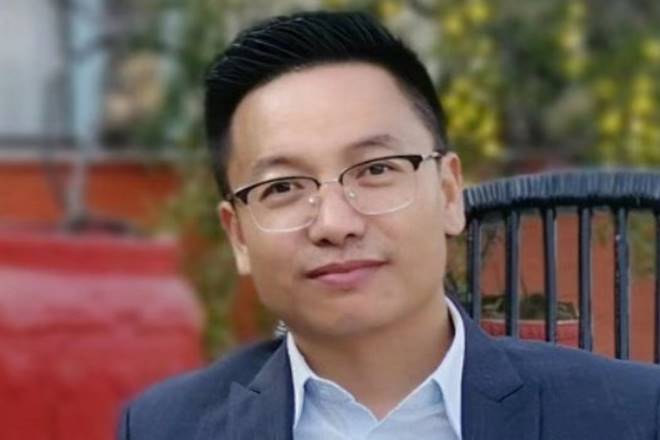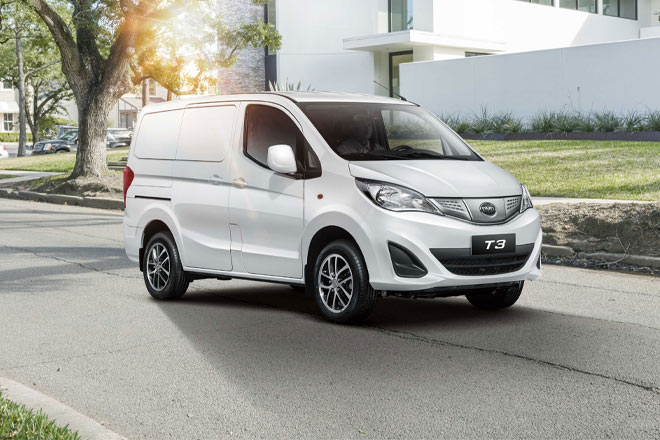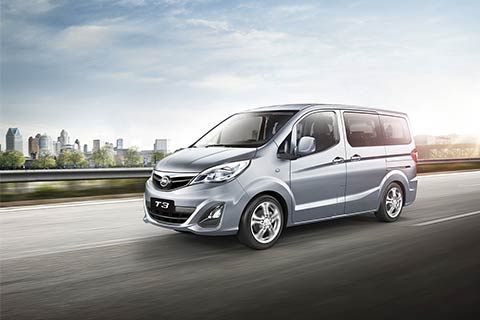
Can you believe this? BYD or Build Your Dreams as it is called, is a pioneer of electric vehicle technology when it come to the Chinese market. That they have been present in India since 2007 is a revelation. The company (BYD India) is headquartered out of Chennai and also has an office in New Delhi. Not only this, the company has also partnered with Olectra for introducing electric public transport service in India. Recently, two vans (electric) were also introduced – T3 MPV as well as the cargo version. We caught up with Ketsu Zhang, executive director of BYD India for a quick chat about the idea behind BYD, electric model sustainability and future plans.
Express Drives: How much investment has gone into the BYD plant here and where is it located? What’s the square foot area?
Ketsu Zhang: BYD India was established on March 2007 in Chennai, India and has an office in New Delhi. The Indian subsidiary has two factories, covering more than 140,000 square metres.The business covers mobile components, solar panels, battery energy storage, electric buses, electric trucks, electric forklifts, chargers, rail transit, etc., and provides customers with product solutions and related after-sales services. The cumulative investment is of $150 million.
ED: How much of the vehicle components are imported or are the vehicles brought in via the CKD or SKD route? What level of localisation are you looking at?
KZ: At BYD, we see a huge potential in India for the e-vehicle business and also feel that India will be one of the biggest markets for e-vehicles in the future. We believe that many competitors will see the potential of electric mobility given that the country is very keen on clean energy solutions to battle pollution and reduce conventional energy consumption.
In the electric bus sector, together with Olectra, BYD will look to maintain its dominant market position in India. At present, the BYD and Olectra partnership has gained a 52 per cent market share of electric buses commercially operating in India. BYD and Olectra were the first to introduce pure electric buses in India. BYD India has set up a local R&D team to work on the production localisation.
ED: Does BYD intend to get into the passenger vehicle segment and if yes, by when?
KZ: BYD has recently launched the T3 pure electric MPV in the Indian market for the initial stage, we will import CBU (completely built unit) from China to create demand and explore potential opportunities. According to the actual market response, we will plan CKD operations in India. BYD will introduce more vehicle models into the Indian market to satisfy requirement of the people in the future.
ED: Tell us more about the products that you have launched? The battery cell technology, fast charging and realistic range one can get. Prices too.
KZ:
BYD Electric Bus: The BYD electric bus is powered by our self-developed lithium iron phosphate battery that has one of the longest drive ranges of 250km on a single charge, under urban road conditions. The BYD buses have a 12-metre body length and 18-ton weight with the one-step low-floor interior. Electric power consumption is less than 1.3kwh per km. BYD electric buses take approximately four hours to completely charge using DC charging equipment. The electric buses also contain the most efficient power train that is powered using batteries available within the bus. The bus also has regenerative braking system that enables energy recovery and extends driving range.
BYD T3 MPV and T3 minivan:

The T3 MPV and T3 minivan models adopt BYD’s proprietary battery technology. The vehicle offers keyless entry, push-button start, a music system with Bluetooth connectivity, reverse parking camera and sensors, and spaces for cargo storage or passengers.

The vehicles are equipped with automatic transmission, which makes them among the most easily operable vehicles. Both models also come with safety features like Anti-lock Braking System (ABS), Electric Parking System (EPB), Brake Override System (BOS), Electronic Brakeforce Distribution (EBD), and more. The regenerative braking system helps to improve range and save energy, while the Controller Area Network (CAN) bus communication system provides smart management and maintenance. Compared to a traditional fuel minivan, T3 MPV and T3 minivan can effectively reduce the cost of urban logistics distribution. A single T3 MPV or T3 minivan can save fuel consumption and emissions equivalent to five passengers cars. Both models require only 1.5 hours to fully charge using DC charging equipment, and both also support standard AC chargers (four hours). Once fully charged, both models can travel up to 300km.
Based on the business model as well as service package adopted for, the prices of the vehicles will be decided.
BYD Battery: We are one of the world’s largest lithium-iron phosphate battery manufacturers and supplying these batteries across the globe is a key strength as it keeps us in line with international standards and requirements. We also have a state-of-the-art battery manufacturing facility in China, the largest of its kind in the world. At present, the facility also has the capacity to expand its production capabilities depending on market requirements. In India, BYD has set up vehicle power battery pack assembly factory to supply the local production of electric bus product.
ED: How about the warranty and after-sales? How many showrooms and service centers do you have now and what’s the expected number in a few years?
KZ: At this early stage, BYD focuses on creating a more efficient, more reliable B2B and electric public transportation sector. We will make good use of existing partners’ network definitely and have associations with Olectra for electric buses in India. BYD’s warranty and after-sales service provide a worry-free using experience for our client.
(It may be noted here that BYD hasn’t specified anything about upcoming showrooms or aftersales services. There is no word on the warranty too.)
ED: Why should someone trust BYD India? New company and there is a general perception about Chinese products here?
KZ:
In 2018, BYD sold 247,811 units of new energy vehicle (including both plug-in hybrid and pure electric passenger and commercial vehicle model) in China. BYD’s sales of new energy vehicles have been ranked first in the world for four consecutive years from 2015 to 2018. In 2018, BYD’s sales of new energy heavy trucks (heavy truck refers to trucks with a total mass exceeding 14 tons) were ranked first in the world. The accumulated sales volume of BYD 10-metre length and above category buses as well as coaches ranks No.1 in the world.
We understand the importance of made-in-India, thus BYD has partnered with Hyderabad-based Olectra for manufacturing and supplying e-bus. The result is fruitful – the partnership has won more than 39 per cent of the tenders in India. BYD manufactures the electric buses locally, specifically the E-Bus K7, which is 9 metres in length, and the E-Bus K9, with a 12 metre length. Both are capable of driving up to 250km without stopping for charging. BYD is aiming for a production rate of 2,000 electric buses in initial several years and gradually climb to 5,000 electric buses per year.
As BYD India continue to create values for India and to provide a needed and sustainable way of transportation for Indian people, we have full confidence that more and more Indian people will accept this company and embrace the clean transportation that BYD provides.
ED: Are you talking with any local partners at the moment? Can you name them?
For bus, BYD India has association with Olectra. For the T3 series and other future products, BYD India is willing to discuss with any business party for possible cooperation.
ED: BYD wants to go premium or remain at the affordable spectrum?
BYD will create different strategies for each market sector. The company will announce the plan according to the development of the market.





















